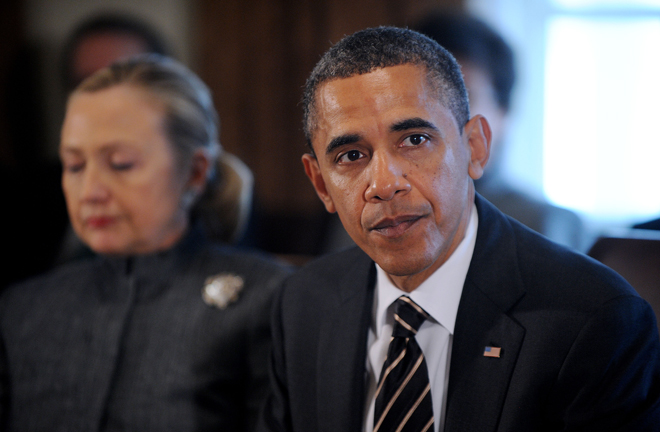A new report by an independent government auditor concludes that implementing President Obama’s health care law as intended will make a significant dent in the long-term debt forecast.
The report comes as Supreme Court justices weigh striking some of “Obamacare’s” central provisions — and perhaps the law in its entirety — and as the Republican Party remains committed to repealing the law if it seizes control of government in November.
“[I]f the Patient Protection and Affordable Care Act (PPACA) is implemented as intended it would have a major effect on the [fiscal] gap but would not eliminate it,” the Government Accountability Office wrote in a Monday report — a conclusion in line with its own past research and similar research conducted by other government and non-government analysts.
GAO doesn’t isolate PPACA’s stand-alone contribution to long-term budget consolidation. But it does conclude that if key cost-control measures in the law, and other automatic cuts to Medicare spending baked into current law, are ignored, or overridden by Congress, the implications for the national debt are vast.
If “Obamacare” is implemented as intended, and other measures, such as automatic payment cuts to Medicare physicians, take effect, “spending on Medicare and Medicaid grows from 5 percent of GDP in 2010 to over 7 percent by 2030.”
By contrast, if Congress overrides those provisions, “[s]pending on health care grows much more rapidly under this more pessimistic set of assumptions,” according to the report. “Absent changes to these programs, spending on Medicare and Medicaid under the Alternative simulation grows to over 8 percent of GDP by 2030.”
Congress has consistently passed temporary legislation to prevent Medicare doctors from experiencing a pay cut baked into current law. But the current patch expires on Jan. 1 — along with the Bush tax cuts and the payroll tax holiday — just as other automatic cuts to Medicare are set to take effect as a penalty for the Super Committee’s failure to pass deficit-cutting legislation.
The confluence of these fiscal triggers suggests lawmakers will be forced to act quickly after the election to put the country’s budget on a more sustainable path. But if Republicans win big in November and move ahead with their plan to repeal the health care law, they’ll only make matters worse.










